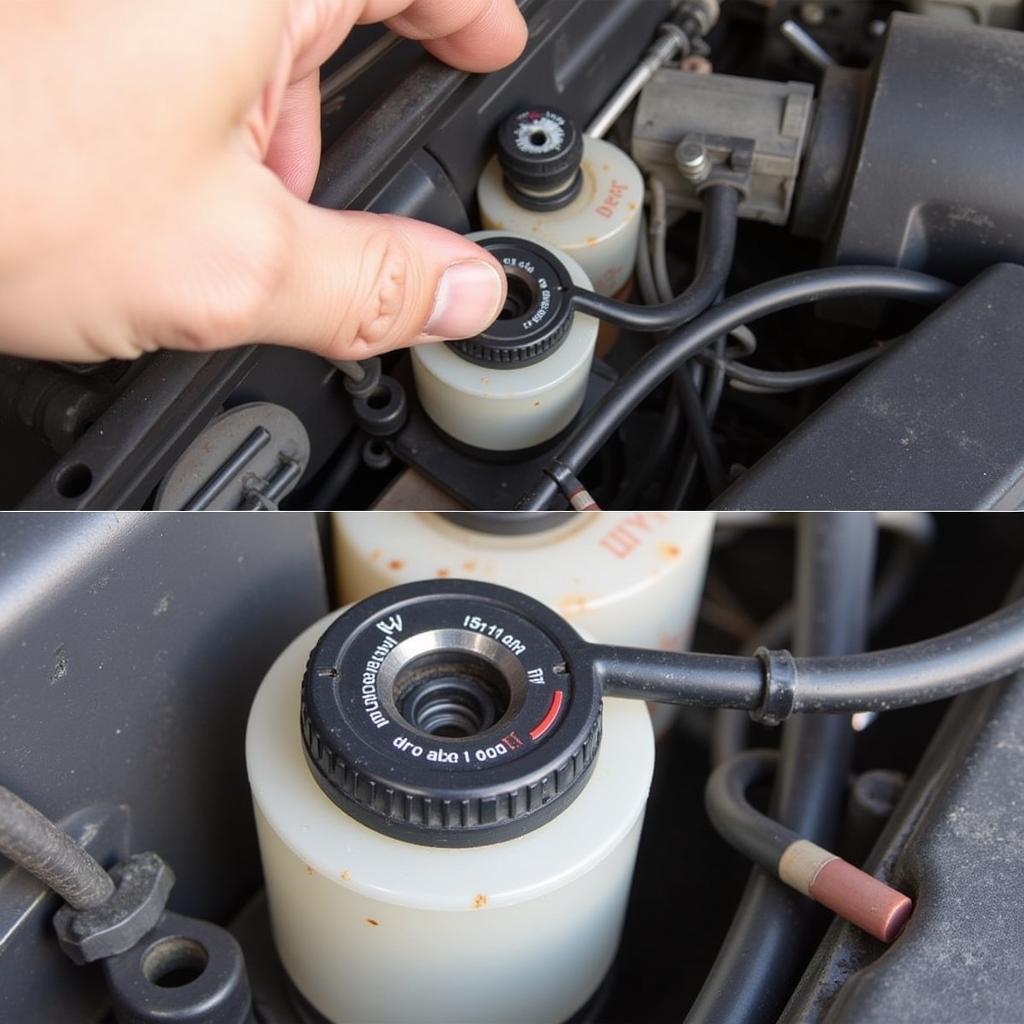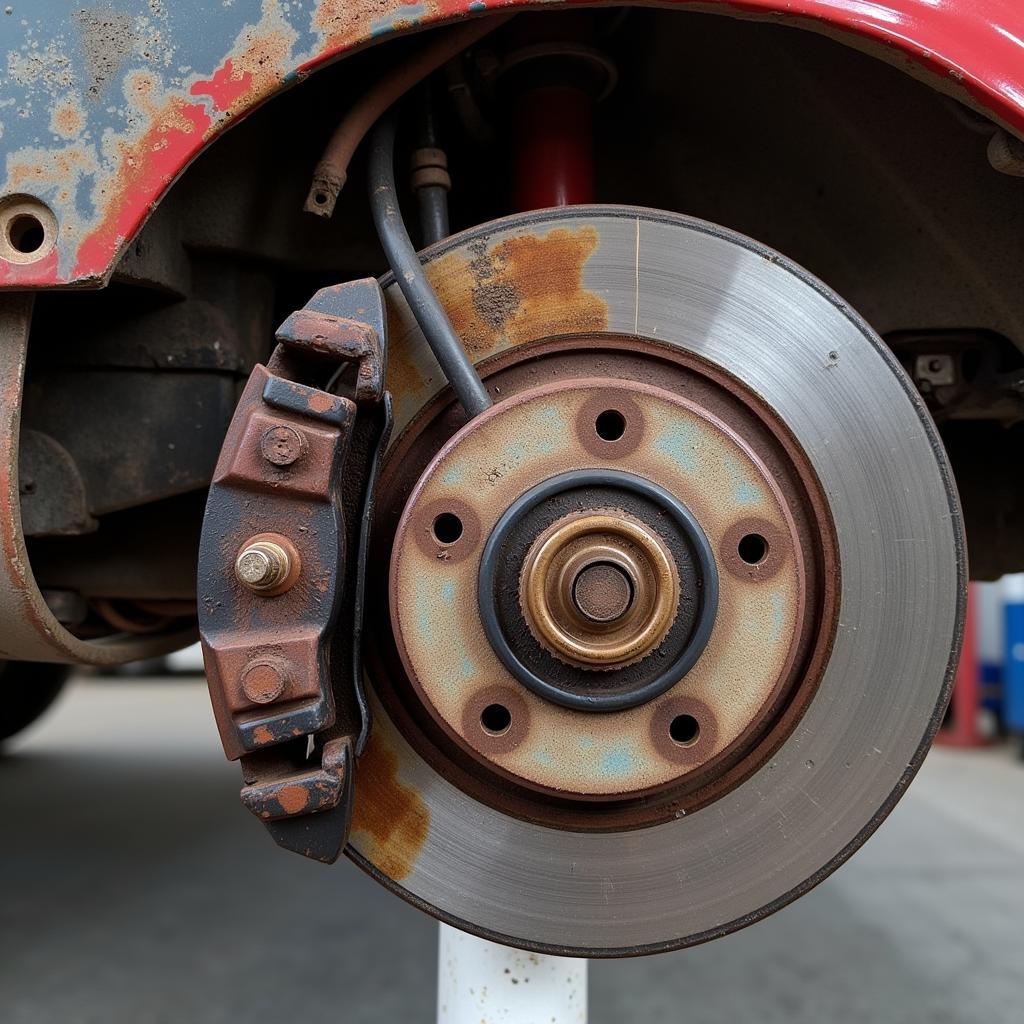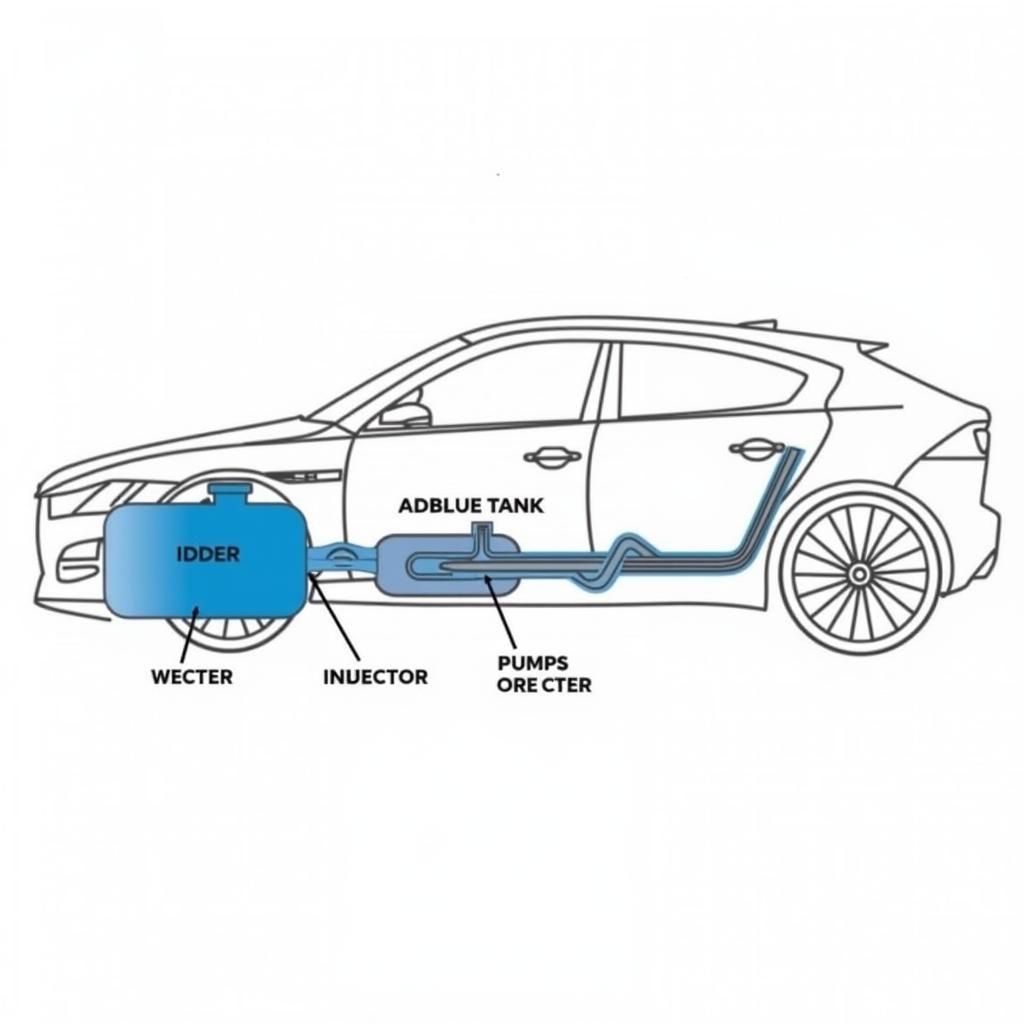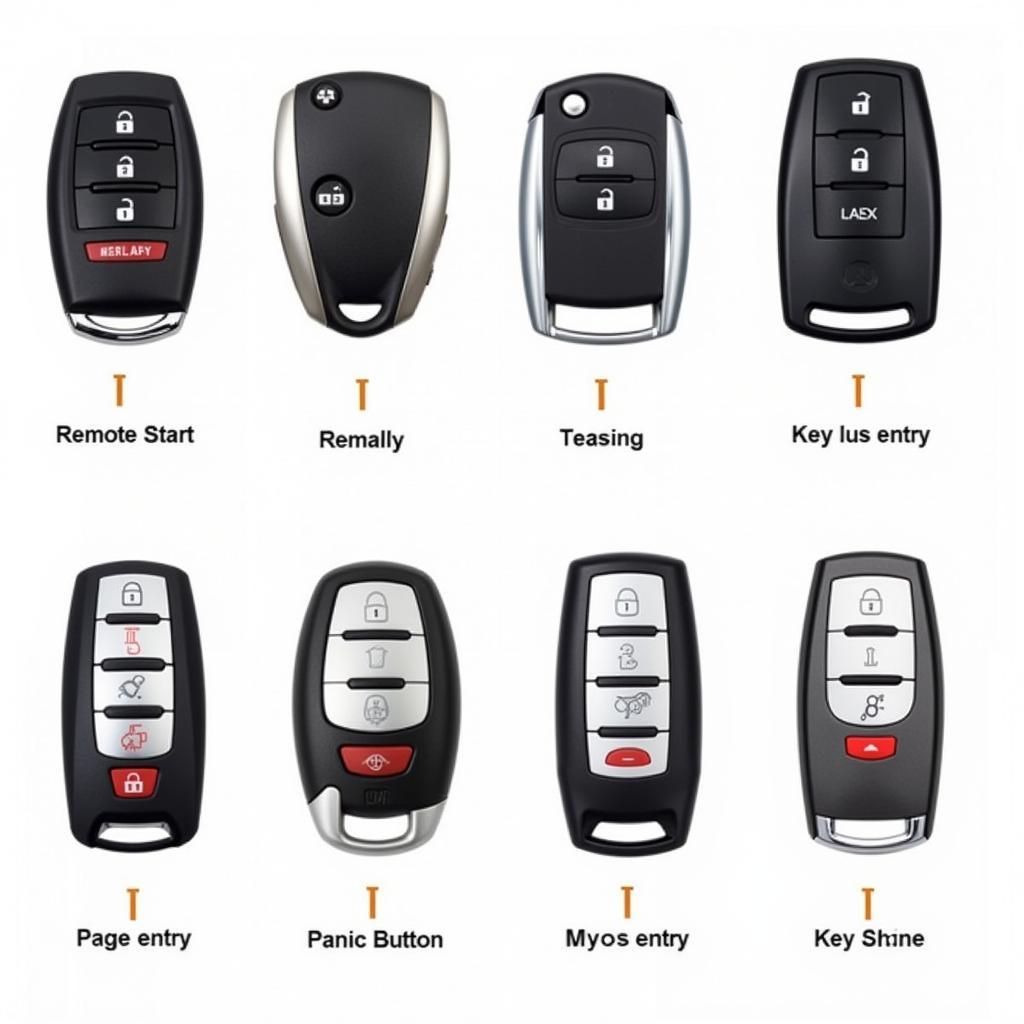The dreaded brake pressure warning light illuminates your 05 International 4200’s dashboard. What does it mean and, more importantly, what do you do? This article addresses the common issues related to the 05 International 4200 brake pressure warning sensor, providing diagnostic and troubleshooting tips, from simple checks to more advanced solutions. We’ll explore how remote software programming and installation can sometimes play a crucial role in resolving these issues.
If your Volkswagen vehicles are also experiencing brake issues, you might find helpful resources about VW Tiguan Brake Pad Warning Light.
Many drivers initially panic when they see this warning light. It’s a natural reaction, as your brakes are critical for safety. However, understanding the potential causes can empower you to take appropriate action. The brake pressure warning sensor in your 05 International 4200 is designed to alert you to a drop in brake system pressure, which could be due to several reasons, ranging from low brake fluid to a more serious issue within the brake system itself.
Common Causes of Brake Pressure Warning Light Activation
The brake pressure warning light in your 05 International 4200 can be triggered by several issues. Some of the most frequent culprits include:
- Low Brake Fluid: This is the most common and easiest to fix. A leak in the brake lines, calipers, or wheel cylinders can cause fluid loss.
- Worn Brake Pads: As brake pads wear down, the brake caliper pistons extend further, requiring more brake fluid. This can trigger the warning light.
- Faulty Brake Pressure Sensor: The sensor itself can malfunction, sending a false signal.
- Issues with the ABS System: Problems within the Anti-lock Braking System (ABS), such as a failing pump or faulty sensor, can affect brake pressure and illuminate the warning light.
- Air in the Brake Lines: Air in the brake lines can compress, reducing the effectiveness of the braking system and triggering the warning light.
You might be interested in learning about other Volkswagen brake issues, such as the 1970 VW Beetle Park Brake Warning.
Diagnosing the Problem
Diagnosing the issue requires a systematic approach. Start with the simplest checks:
-
Check the Brake Fluid Level: Open the hood and locate the brake fluid reservoir. Check the fluid level against the minimum and maximum markers. If it’s low, add the correct type of brake fluid as specified in your owner’s manual.
-
Inspect for Leaks: Carefully examine the brake lines, calipers, and wheel cylinders for any signs of leakage. Look for wet spots or dripping fluid.
-
Check Brake Pad Thickness: Inspect the brake pads through the wheel spokes. If they appear thin, it’s time for a replacement.
 Checking Brake Fluid Level in a 05 International 4200
Checking Brake Fluid Level in a 05 International 4200
Remote Diagnostics and Software Solutions
In some cases, the brake pressure warning light issue might be related to the vehicle’s electronic control unit (ECU). Remote diagnostics, programming, and software installation can be a valuable tool in these situations. A qualified technician can access the vehicle’s ECU remotely, diagnose software glitches, and install updates or patches to resolve the issue.
If you are experiencing a false brake light warning on your Volkswagen, check out False Brake Light Warning VW.
Advanced Troubleshooting
If the basic checks and remote diagnostics don’t reveal the problem, more advanced troubleshooting might be necessary. This may involve:
- Bleeding the Brakes: This process removes air from the brake lines. It’s best performed by a qualified mechanic.
- Testing the Brake Pressure Sensor: A multimeter can be used to test the sensor’s electrical function.
- Inspecting the ABS System: A diagnostic scan tool can be used to check for fault codes within the ABS system.
 Inspecting Brake Lines on an International 4200
Inspecting Brake Lines on an International 4200
For those with a Volkswagen Golf, information on the Volkswagen Golf Brake Warning Light might be useful.
Conclusion
Addressing the 05 International 4200 brake pressure warning sensor requires careful diagnosis and appropriate action. Start with the simple checks, then consider remote diagnostics and software solutions. If the problem persists, seek professional assistance for advanced troubleshooting. Remember, a properly functioning brake system is essential for your safety on the road.
FAQ
-
What is the most common cause of the brake pressure warning light? Low brake fluid is the most common cause.
-
Can worn brake pads trigger the warning light? Yes, worn brake pads can cause the caliper pistons to extend further, requiring more brake fluid and potentially triggering the light.
-
Can I drive with the brake pressure warning light on? No, it is unsafe to drive with the warning light illuminated. Have the issue diagnosed and repaired immediately.
-
What is remote diagnostics and programming? It’s a method where a technician can access your vehicle’s computer remotely to diagnose and fix software-related issues.
-
How often should I check my brake fluid level? It’s a good idea to check your brake fluid level at least once a month.
-
What type of brake fluid should I use in my 05 International 4200? Consult your owner’s manual for the correct type of brake fluid.
-
What should I do if I suspect a leak in my brake system? Do not drive the vehicle. Have it towed to a qualified mechanic for repair.
You might find information on the 2002 Passat Brake Warning Light helpful if you own this model.



